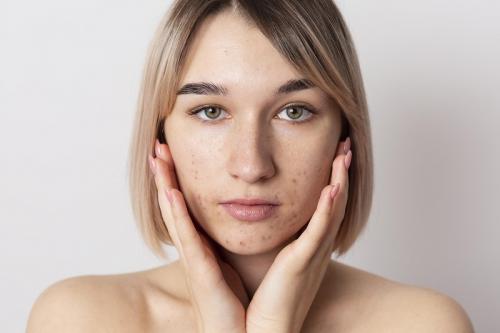Understanding the Effects of Discontinuing Tretinoin on Your Skin

Tretinoin is a popular topical medication used to treat acne and reduce the appearance of fine lines and wrinkles. However, many people are unaware of the potential effects that can occur when they stop using this medication. In this article, we will explore what happens when you discontinue tretinoin and how it can affect your skin.
What is Tretinoin?
Tretinoin is a derivative of vitamin A, also known as retinoic acid. It works by increasing cell turnover and reducing the production of sebum, which can lead to clogged pores and breakouts. Tretinoin is available in several strengths and formulations, including creams, gels, and solutions.
Effects of Discontinuing Tretinoin:
1. Increased Acne Breakouts:
One of the most common effects of discontinuing tretinoin is an increase in acne breakouts. This occurs because tretinoin helps to unclog pores and prevent new pimples from forming. When you stop using tretinoin, your pores may become clogged again, leading to more breakouts.
2. Dryness and Irritation:
Another common effect of discontinuing tretinoin is dryness and irritation. Tretinoin can cause some initial dryness and redness as your skin adjusts to the treatment. However, over time, your skin may become better able to tolerate the medication. When you stop using tretinoin, you may experience a resurgence of these symptoms.
3. Loss of Anti-aging Benefits:
Tretinoin is often used as an anti-aging treatment because it can help to reduce the appearance of fine lines and wrinkles. However, these benefits are only achieved with consistent use over time. When you stop using tretinoin, you may lose some of these anti-aging benefits.
4. Return of Hyperpigmentation:
Tretinoin can also help to reduce the appearance of hyperpigmentation, such as sunspots and melasma. When you stop using tretinoin, you may notice a return of these dark spots on your skin.
How to Minimize the Effects of Discontinuing Tretinoin:
If you are planning to discontinue tretinoin, there are several steps you can take to minimize the effects:
1. Gradually reduce usage: Instead of stopping tretinoin cold turkey, consider gradually reducing your usage over several weeks or months. This can help to minimize the severity of any rebound acne breakouts or other symptoms.
2. Use alternative treatments: Consider using alternative treatments for acne or anti-aging, such as benzoyl peroxide or alpha hydroxy acids. These treatments can help to maintain clear, youthful-looking skin.
3. Talk to a dermatologist: If you are experiencing severe symptoms after discontinuing tretinoin, it may be helpful to talk to a dermatologist. They can recommend additional treatments or provide guidance on how to manage your skin during this transition period.
Conclusion:
Discontinuing tretinoin can have a range of effects on your skin, including increased acne breakouts, dryness and irritation, loss of anti-aging benefits, and a return of hyperpigmentation. However, by taking steps to gradually reduce usage, use alternative treatments, and seek the advice of a dermatologist, you can minimize these effects and maintain clear, healthy-looking skin.
Post Your Ad Here
Comments